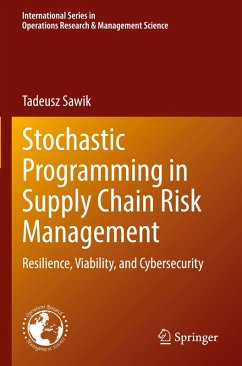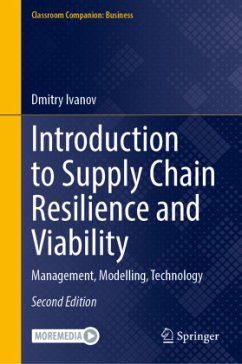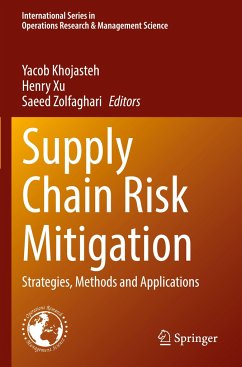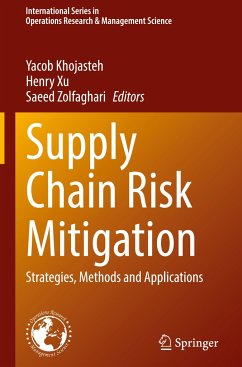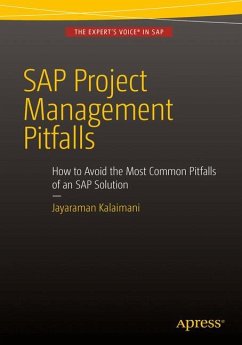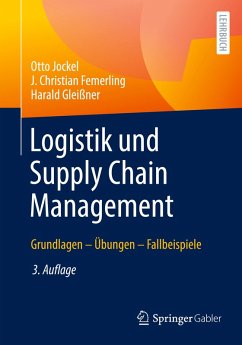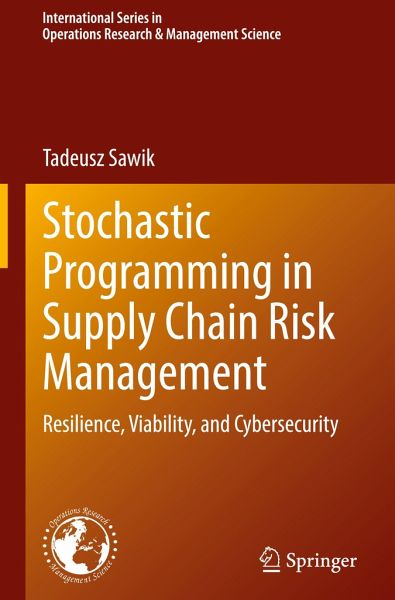
Stochastic Programming in Supply Chain Risk Management
Resilience, Viability, and Cybersecurity
Versandkostenfrei!
Versandfertig in 6-10 Tagen
121,99 €
inkl. MwSt.
Weitere Ausgaben:

PAYBACK Punkte
61 °P sammeln!
This book offers a novel multi-portfolio approach and stochastic programming formulations for modeling and solving contemporary supply chain risk management problems. The focus of the book is on supply chain resilience under propagated disruptions, supply chain viability under severe crises, and supply chain cybersecurity under direct and indirect cyber risks. The content is illustrated with numerous computational examples, some of which are modeled on real-world supply chains subject to severe multi-regional or global crises, such as pandemics. In the computational examples, the proposed stoc...
This book offers a novel multi-portfolio approach and stochastic programming formulations for modeling and solving contemporary supply chain risk management problems. The focus of the book is on supply chain resilience under propagated disruptions, supply chain viability under severe crises, and supply chain cybersecurity under direct and indirect cyber risks. The content is illustrated with numerous computational examples, some of which are modeled on real-world supply chains subject to severe multi-regional or global crises, such as pandemics. In the computational examples, the proposed stochastic programming models are solved using an advanced algebraic modeling language AMPL and GUROBI solver.
The book seamlessly continues the journey begun in the author's previously published book "Supply Chain Disruption Management: Using Stochastic Mixed Integer Programming." It equips readers with the knowledge, tools, and managerial insights needed to effectively model and address modern supply chain risk management challenges. As such, the book is designed for practitioners and researchers who are interested in supply chain risk management. Master's and Ph.D. students in disciplines like supply chain management, operations research, industrial engineering, applied mathematics, and computer science will also find the book a valuable resource.
The book seamlessly continues the journey begun in the author's previously published book "Supply Chain Disruption Management: Using Stochastic Mixed Integer Programming." It equips readers with the knowledge, tools, and managerial insights needed to effectively model and address modern supply chain risk management challenges. As such, the book is designed for practitioners and researchers who are interested in supply chain risk management. Master's and Ph.D. students in disciplines like supply chain management, operations research, industrial engineering, applied mathematics, and computer science will also find the book a valuable resource.



